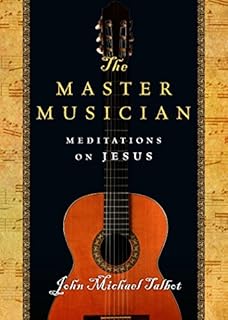
In 2008, after a dozen or so years in youth ministry, I chose to move into a solo pastorate, and then into what would probably be called a senior pastorate. I believe it is what God called me to do, in large part because I believe that I am called to preach.
I don't know why I feel called to preach. I think I have teaching gifts to be exercised in the church. I struggle with doubts, though, about whether I am really all that good at what I do, and whether God is continuing to call me into this kind of ministry. But, I try and be faithful to the call, and people seem to respond with feedback that tells me that my preaching is making its way into their hearts and lives.
Having said that, I have been thinking a lot lately about my preaching methods and habits. I have found that each time I am in a different community, it is important that I learn to alter how I communicate to each group. Belgrade Community Church wanted to be inspired to live the Christian life with enthusiasm, and so they preferred a more conversational approach from me--even though that was neither of my senior pastor's styles. In Colorado Springs, people wanted to connect with the heart and head, so the preacher was challenged to be open enough to vulnerable (but not too vulnerable), but also handle the word with intellectual rigor and clarity. Fowler wanted to hear the Word, plain and simple. Fowlerites liked it when you got excited, and responded when you challenged them from the pulpit, but most of all, they just wanted to hear a clear gospel message. Here in Hot Springs, this church at this time is hungry for sound, understandable teaching on basic Christian living. Many of the folks in church seem to respond well to sermon outlines, with blanks to fill in. They like sermon series' on relevant issues and basic discipleship. Last year I did an "Under Construction" theme. The summer before that a "Together in Christ" series highlighting the important issues related to life together (like forgiveness for example). This year I have preached through the Fruit of the Spirit. Even though attendance has not been as strong this summer, I feel like the 9 week series has been my best two months of preaching since arriving at United Churches.
Having said that, I focus my work in the contemporary service in the evening doing more of what I did in Fowler. In Fowler, I preached through Bible books in a sequential fashion, thus drawing messages from Scripture and applying them to life. This has the function of teaching the Word the way it was presented, and educating the parishoners on Bible content while inspiring them to connect with God and live their life based upon the Word. There are times, however, where it can come across like more "bible-study" and less "preaching".
Now, both my seminary training and some of my members, especially those from traditions other than my own in this multi-denominational church, really value use of the Revised Common Lectionary (RCL) in worship. (The RCL is a selection of 4 texts chosen by an ecumenical ground of mainline leaders that rotates through selected texts every three years with a Psalm Reading, and Old Testament reading, a Gospel reading, and an Epistle Reading. The order the texts around the seasons of the church year, and tying together themes from Biblical literature in each section of Scripture.)There have been times when I have been able to tie a theme to the RCL, and work that together pretty well. But the RCL often is neither sequential in its study of specific parts of Scripture, nor easily able to work into a "thematic unit" that really works for those "teacher types" in my congregation.
Now that I am nearing Fall, and coming to the place of sermon planning, I am at a crossroads. Our church has structures our lay leadership around an RCL preaching schedule and methodology. I don't mind the RCL a lot of the time. And, I believe the practice of the church year (Advent to Pentecost especially) is an important spiritual rhythym that the RCL honors and assists with. But, more and more, I wonder if my preaching gifts and the church's learning style's are ripe for a change in our adherence to the RCL for most of the year.
So I wonder, can I move in a more independent direction full-time without upsetting key leaders in my congregation. How important is the RCL to the congregations identity and self-understanding of what worship should be like for them? Should I continue to seek out series material, or is that pushing me away from "preaching the whole counsel of God?"
Just things I am thinking about. The reader's comments are always appreciated, as is the banter back and forth that will follow.






